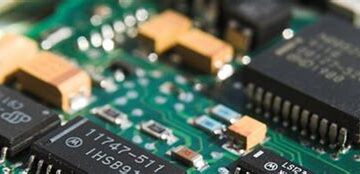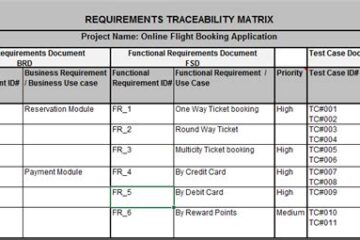Understand What Turnkey Manufacturing Entails
Before requesting quotes, it’s critical to have a clear understanding of what turnkey manufacturing involves. Turnkey manufacturing is an end-to-end solution where the contract manufacturer handles the entire production process for the customer, from procuring components to final assembly, testing, and packaging.
The main advantages of turnkey manufacturing include:
- Simplified supply chain management
- Reduced costs through economies of scale
- Access to the manufacturer’s expertise and resources
- Faster time to market
However, for the partnership to be successful, you must provide the contract manufacturer with detailed and accurate information about your product and requirements. This allows them to give you a precise quote that accounts for all necessary costs.
Prepare Detailed Product Documentation
To receive an accurate Turnkey manufacturing quote, you need to supply potential contract manufacturers with comprehensive documentation about your product. This documentation should include:
Bill of Materials (BOM)
The BOM is a complete list of all the components, parts, and materials required to build your product. It should specify:
- Part numbers
- Quantities
- Manufacturers
- Descriptions
Providing an accurate BOM is essential for the contract manufacturer to understand the scope of the project and provide a realistic quote.
Mechanical Drawings
Mechanical drawings, also known as engineering drawings or technical drawings, are detailed visual representations of your product. They convey the geometry, dimensions, tolerances, and other mechanical specifications necessary for manufacturing.
Types of mechanical drawings to include:
- Assembly drawings
- Exploded view drawings
- Detailed part drawings
- 3D CAD models
The more detailed and accurate your mechanical drawings, the better the contract manufacturer can assess the complexity of your product and provide an appropriate quote.
PCB Design Files
If your electronic product includes a printed circuit board (PCB), you must provide the manufacturer with the PCB design files. These files contain all the information needed to fabricate and assemble the PCB.
Essential PCB design files:
- Gerber files
- Drill files
- Pick and place files
- Bill of Materials (BOM)
- Assembly drawings
Ensure your PCB design adheres to the contract manufacturer’s capabilities and guidelines to avoid additional costs or delays in production.
Firmware and Software
For products with digital components, firmware and software are integral parts of the design. Provide the contract manufacturer with:
- Source code
- Compiled binaries
- Programming and testing instructions
- Licensing information
Clearly document any dependencies, libraries, or tools required for the firmware and software development and testing process.
Testing and Quality Requirements
Communicate your expectations for product testing and quality assurance to the contract manufacturer. This may include:
- Functional testing
- Environmental testing
- Reliability testing
- Compliance testing (e.g., FCC, CE, UL)
- Acceptable quality levels (AQL)
Providing detailed testing and quality requirements helps the manufacturer include the necessary processes and resources in their quote.
Request Quotes from Multiple Manufacturers
Once you have prepared your product documentation, reach out to several turnkey electronics manufacturing companies for quotes. Researching and comparing multiple options allows you to:
- Assess the market rates for your project
- Evaluate each manufacturer’s capabilities and expertise
- Identify potential cost-saving opportunities
When requesting quotes, provide the manufacturers with the same detailed product documentation to ensure you receive comparable and accurate estimates.

Review and Clarify the Quotes
Upon receiving quotes from the manufacturers, carefully review each one to understand what is included and what may be missing. A comprehensive turnkey manufacturing quote should include:
| Cost Category | Description |
|---|---|
| Materials | Cost of components, parts, and raw materials |
| Labor | Direct labor costs for assembly, testing, and packaging |
| Tooling and Setup | Non-recurring engineering (NRE) costs for custom tooling |
| Testing and Quality Control | Costs associated with product testing and inspection |
| Packaging and Shipping | Expenses for packaging materials and shipping to destination |
| Overhead and Profit | Manufacturer’s indirect costs and profit margin |
If any information is unclear or missing, follow up with the manufacturer for clarification. Ask questions about:
- Minimum order quantities (MOQ)
- Lead times
- Payment terms
- Intellectual property protection
- Warranty and support
Getting a clear understanding of each quote will help you make an informed decision when selecting a turnkey manufacturing partner.
Negotiate and Finalize the Contract
After evaluating the quotes and capabilities of the potential manufacturers, select the one that best aligns with your needs and budget. Engage in negotiations to finalize the pricing, terms, and conditions of the manufacturing agreement.
Key points to negotiate:
- Pricing based on volume commitments
- Payment milestones and terms
- Lead times and delivery schedules
- Quality and testing requirements
- Intellectual property ownership
- Liability and indemnification
- Termination clauses
Once you have reached an agreement, document the final terms in a formal contract. This contract will serve as the basis for your working relationship with the turnkey electronics manufacturer.
Maintain Open Communication
Throughout the manufacturing process, maintain open and regular communication with your turnkey manufacturing partner. This will help ensure that:
- The project stays on track and meets deadlines
- Any issues or concerns are addressed promptly
- Quality standards are consistently met
- Changes or updates are communicated effectively
Establishing a strong, collaborative relationship with your manufacturer will contribute to the success of your electronics product.
Frequently Asked Questions (FAQ)
1. What is the difference between turnkey manufacturing and contract manufacturing?
Turnkey manufacturing is a type of contract manufacturing where the manufacturer handles the entire production process, from sourcing components to final assembly and testing. In contrast, contract manufacturing can refer to any outsourced manufacturing services, which may only include specific stages of the production process.
2. How long does it typically take to receive a turnkey manufacturing quote?
The time required to receive a turnkey manufacturing quote can vary depending on the complexity of your product and the responsiveness of the manufacturer. Generally, expect to receive quotes within 1-2 weeks after submitting your request and product documentation.
3. What factors influence the cost of turnkey electronics manufacturing?
Several factors can impact the cost of turnkey electronics manufacturing, including:
- Component and material costs
- Product complexity and design
- Manufacturing processes required
- Order volume and minimum order quantities
- Testing and quality control requirements
- Shipping and logistics
4. How can I ensure the protection of my intellectual property when working with a turnkey manufacturer?
To safeguard your intellectual property (IP) when engaging with a turnkey manufacturer:
- Use non-disclosure agreements (NDAs) before sharing sensitive information
- Include IP protection clauses in your manufacturing contract
- Work with manufacturers that have a proven track record of respecting IP rights
- Consider filing for patents or trademarks to protect your product and brand
5. What should I do if I receive quotes that vary significantly in price?
If you receive quotes with significant price differences, carefully review each quote to understand the underlying reasons. Factors that can lead to price variations include:
- Differences in component sourcing or pricing
- Manufacturing capabilities and processes
- Quality control and testing procedures
- Location and labor costs
- Profit margins
Request clarification from the manufacturers to ensure you are comparing “apples to apples.” Keep in mind that the lowest price may not always be the best option if it compromises quality or reliability.
Conclusion
Obtaining an accurate quote is a critical step in the turnkey electronics manufacturing process. By understanding what turnkey manufacturing entails, preparing detailed product documentation, and requesting quotes from multiple manufacturers, you can ensure that you receive comprehensive and precise estimates for your project.
When evaluating quotes, consider factors beyond just the price, such as the manufacturer’s capabilities, quality control processes, and communication. Engage in negotiations to finalize the terms of your manufacturing agreement and maintain open communication throughout the production process.
By following these guidelines and working closely with your chosen turnkey manufacturing partner, you can bring your electronic product to market with confidence and success.



0 Comments